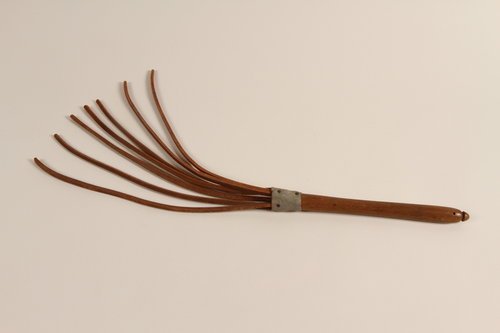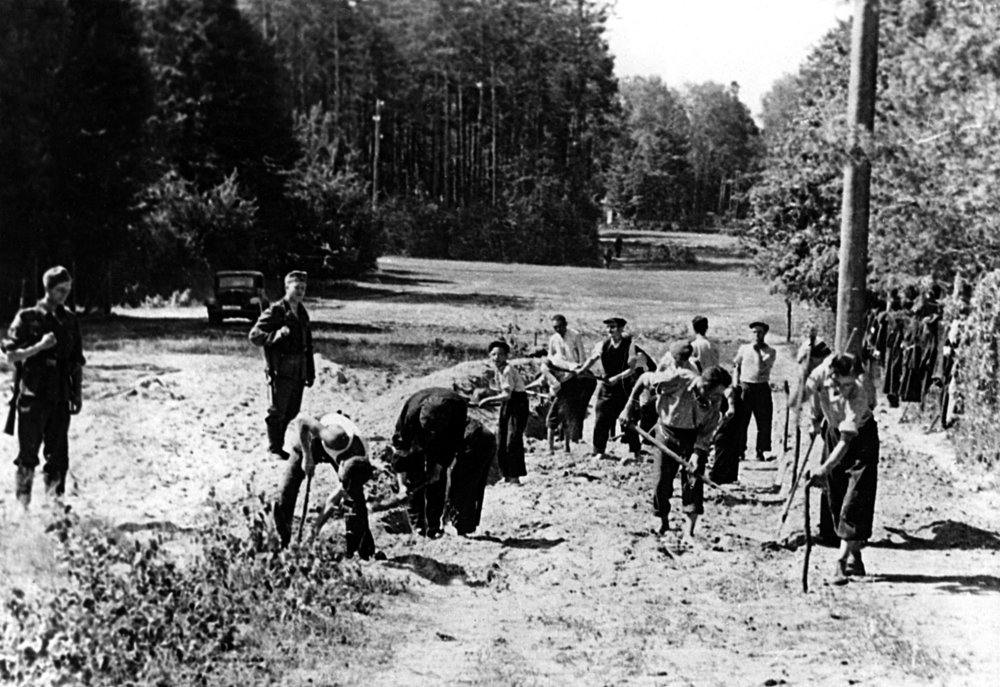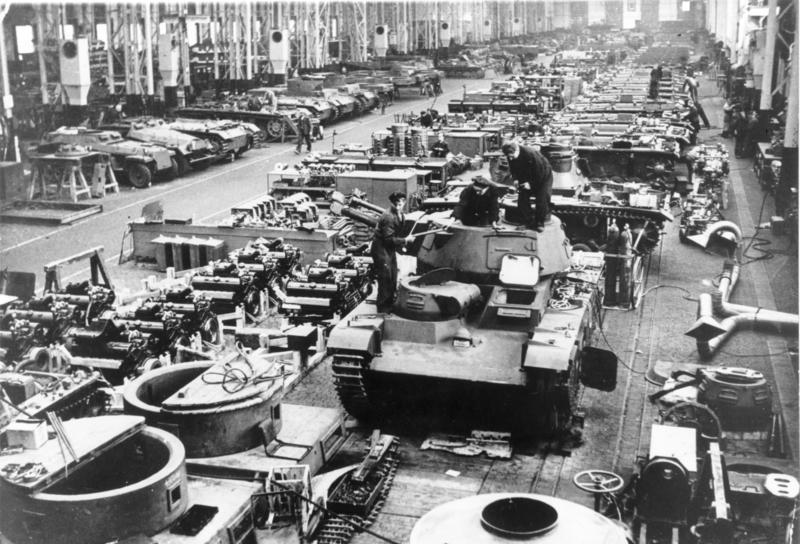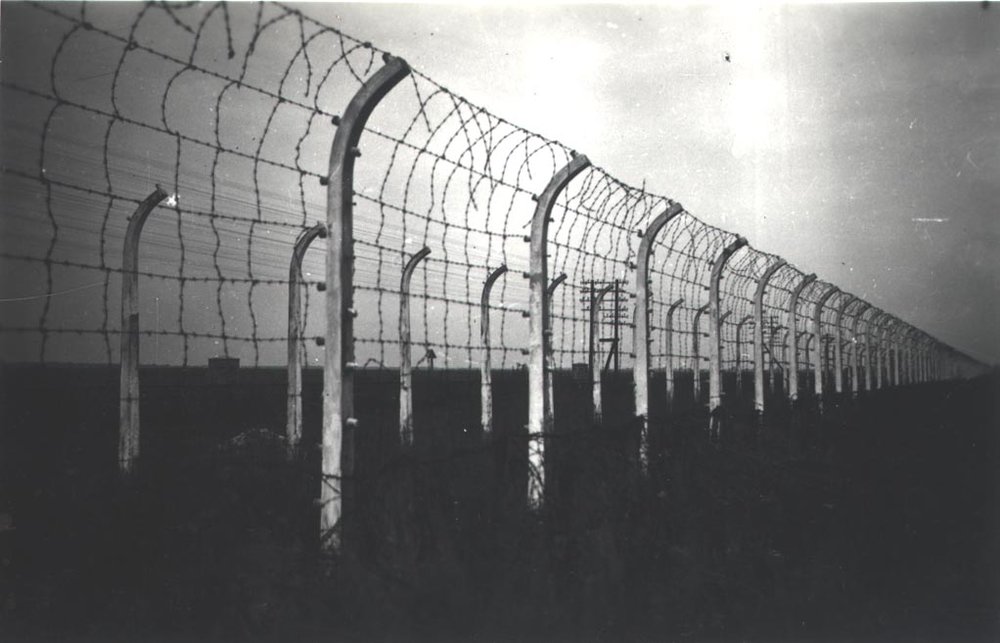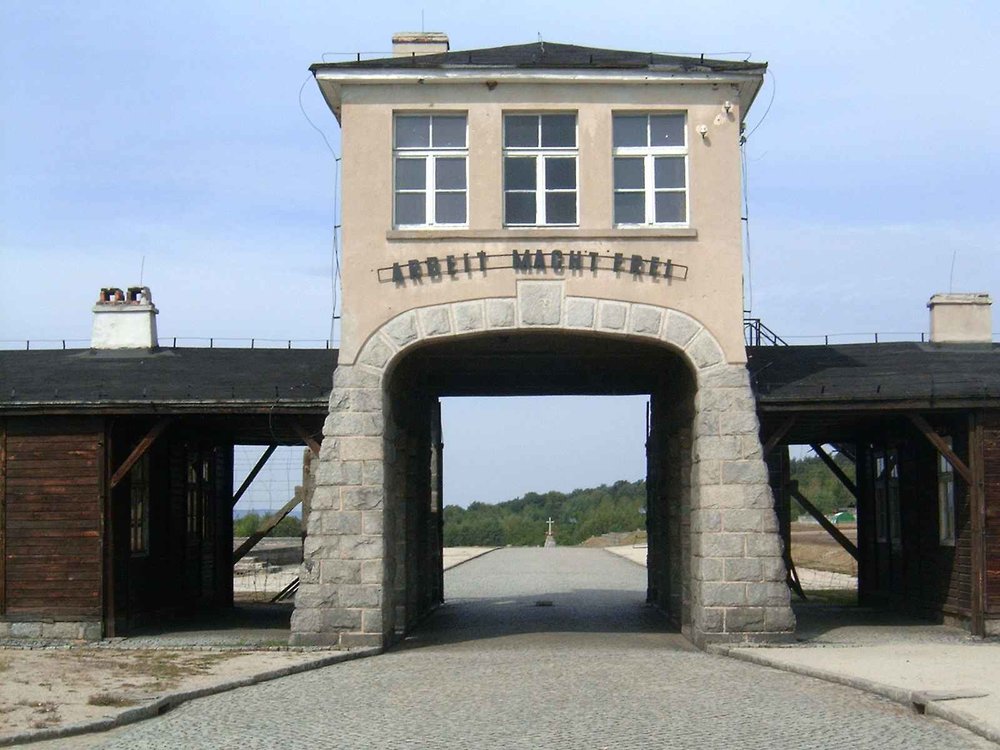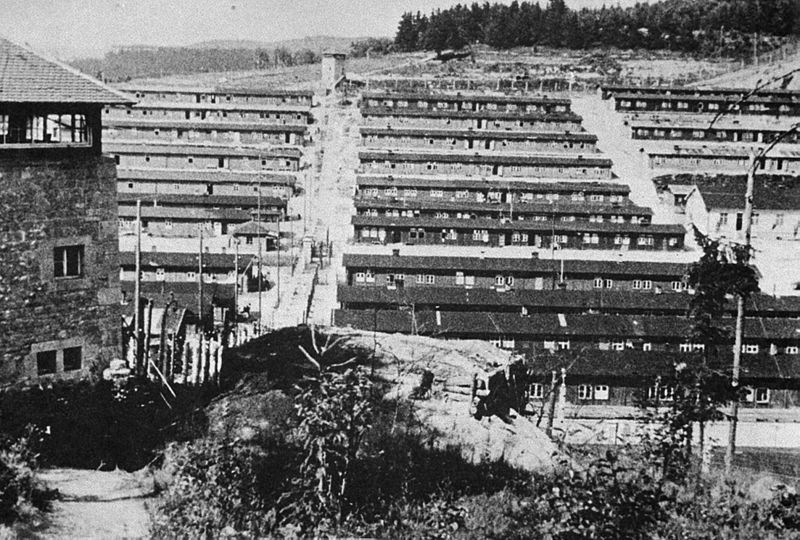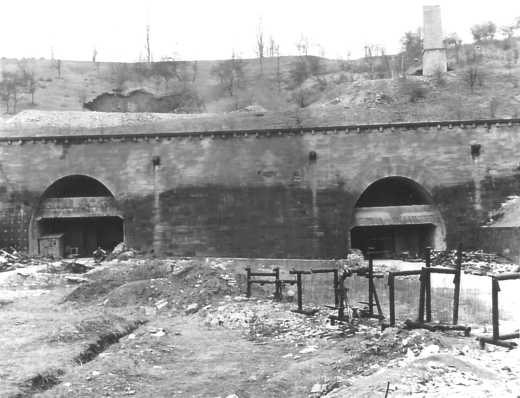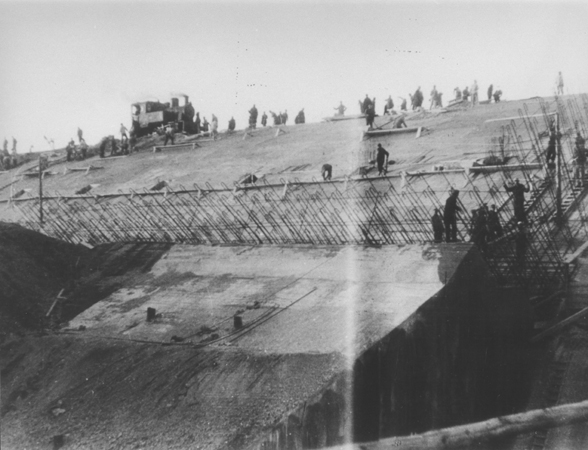Without delay a stool was brought and the Barrack Elder was held down by the Block Elder and the Camp Dentist (actually only an ex-dental technician) who was responsible for “camp hygiene”. The thug Bossack, who had a pockmarked face and was a repugnant tyrant from Sosnowitz, then administered twenty-five lashes on the Barrack Elder’s naked bottom. Then many of the beds and the straw on them were deliberately messed up. “I will return in fifteen minutes”, said the Block Elder, “and the barracks better be spick and span!” The beating only made the Barrack Elder even more ruthless and truculent.”
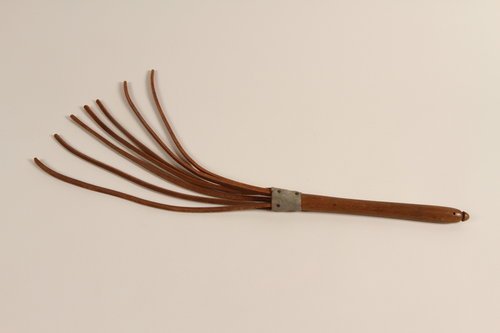
Whips made of leather strips attached to a wooden handle were found at various concentration camps. William Weinberg, a member of Company B, 15th Infantry Regiment of the 3rd Division, took this whip in April 1945 from a German man who was presumably a Dachau concentration camp guard. [United States Holocaust Memorial Museum Collection, Gift of William M. Weinberg]
“We had experienced less harsh treatment at the camp in Grünheide; there it was only prisoners who had committed serious offences such as theft who were subjected to severe corporal punishment. In Märkstadt, however, severe corporal punishment was such a daily routine occurrence it did not even merit comment. The dentist Jakubowitz, whose job it was to remove inmates’ teeth without anaesthetic, was prominent among the rows of guards who applied themselves energetically to the task of beating prisoners. In our minds Grünheide now seemed like a peaceful village. There, they did not count out the potatoes in a pedantic fashion! They just heaped them on to our plates. The bread was tastier and at lunchtime we were allowed into the dining room where we sat at large wooden tables and ate in peace. In Grünheide we resented the fact that on Sunday mornings we had to polish the tables and benches with sandpaper until they gleamed. In retrospect, how small these problems seemed compared with the oppressed, hounded life we were now leading. Here, we were no longer among just a few hundred inmates who one felt one knew and among whom one felt like a human being. In Märkstadt, I felt completely lost among the anonymous masses. More than five thousand forced labourers were assembled in the one place; people from different countries, different professions and ages.

